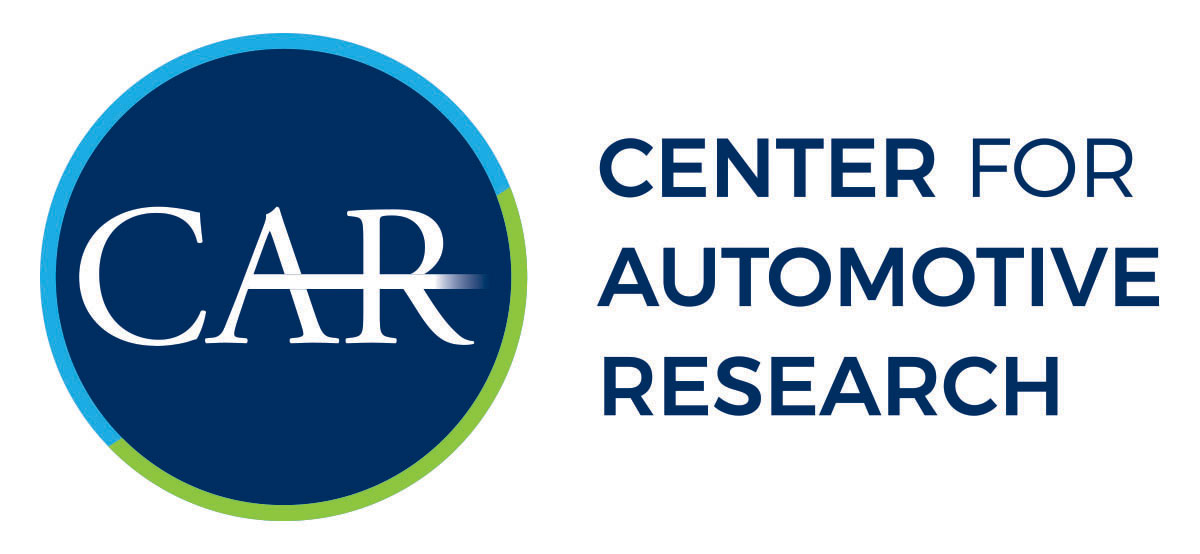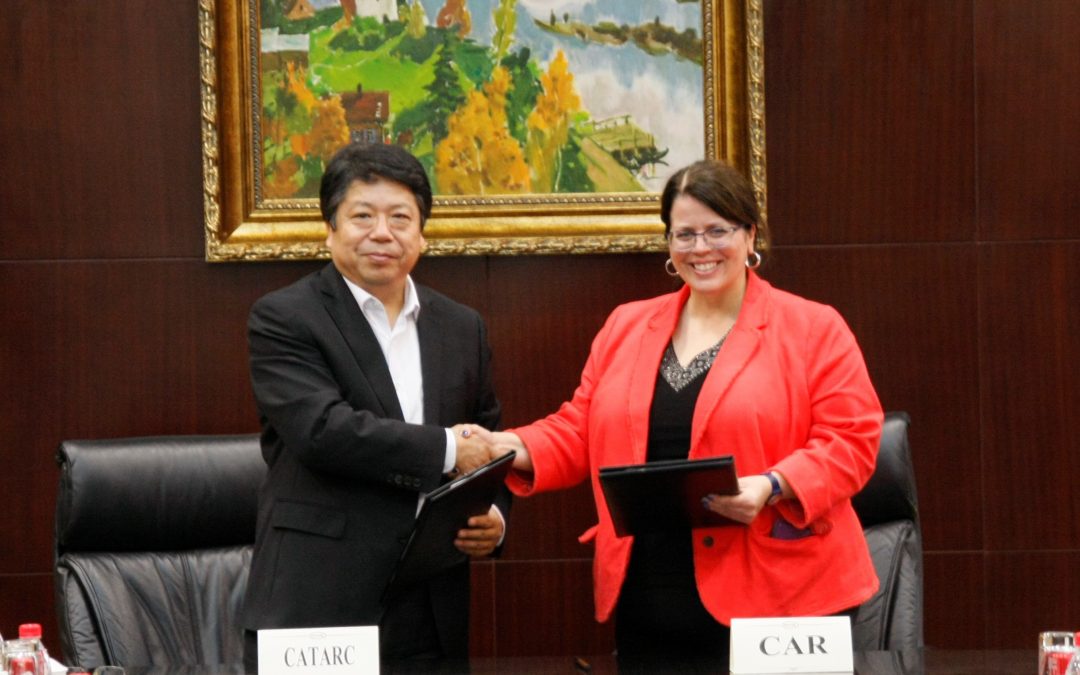Background and Motivation
The automotive industry is a critical component of broader U.S. – China socio-economic, trade, and investment relations. Automobiles are one of the United States’ most important exports to China, ranking just behind aircraft and agriculture products, with a value of $13.5 billion or 10.3 percent of U.S. exports to China in 2017. At the same time, China exported $18.4 billion auto parts and vehicles to the United States, accounting for 3.6 percent of its total exports to the United States. Chinese investment in the North American automotive industry has been steadily increasing since 2000, and Chinese investment in the U.S. automotive sector now totals an estimated $4.3 billion. Chinese automotive companies that operate in the United States have grown from parts and components suppliers, to joint ventures, to wholly owned tier-one suppliers, to component and system R&D centers, and now to vehicle R&D centers and advanced autonomous vehicle research.

The U.S. and China automotive markets have a significant influence on the global automotive industry. China became the world’s largest automotive market and automotive manufacturing country in 2009, and many global companies rely on China for future revenue growth. Total vehicle production and sales in both countries achieved 40.2 million and 48.2 million units,
or 41.3 percent and 48.2 percent of the world total, respectively. Both markets attract a wide range of global automakers, suppliers, and related firms.
Chinese and U.S. companies are both racing to develop connected and automated vehicles that will shape the future mobility ecosystem. Closer collaborations and strategic analysis of current U.S. and Chinese automotive sectors, technology trends, and policy environments will accelerate the deployment of new technologies and therefore benefit the industry, investors, business communities, and the general public in both countries.
The Center for Automotive Research (CAR), an independent, non-profit, research organization based in Ann Arbor, Michigan, and China Automotive Technology and Research Center Co., Ltd. (CATARC), the most important third-party and independent think tank for China’s automotive industry, are pleased to partner and create the U.S. – China Automotive Partnership (UCAP). UCAP’s mission is to facilitate dialogue between U.S. – China automotive think tanks and provide a high level platform for U.S. – China automotive collaboration through independent research and analysis of the critical issues facing the automotive industry in both countries, disseminating research findings through events organized by both organizations, and business matchmaking. The Partnership could also provide policy guidance and technical support to the bilateral socioeconomic and trade dialogue at the national level. CATARC and CAR will co-lead UCAP which will also include key partners from both countries.
Areas of Cooperation and Scope
UCAP will investigate global automotive and mobility trends, identify key factors that will significantly influence and shape the automotive industries in both countries, and determine areas for cooperation. Key topic areas of collaboration include but are not limited to:
Automotive Trade, Investment Policies, and Regulations
The global automotive industry is highly integrated. The supply chains are profoundly interlinked, and automotive-producing countries are interdependent in the R&D, production, and service aspects of the business. Global trade and public policies significantly affect corporate strategies and investment decisions. The UCAP will investigate topic areas related to U.S. and China automotive trade policies, regulations, tariffs, and government business incentives that will affect bilateral automotive relations in general and trade and investments in particular.
Connected and Automated Vehicle Policies, Regulations, and Deployment
Global OEMs and local governments are in a race to develop and adopt advanced mobility technologies. The UCAP will track and summarize:
- Federal and local legislation, regulations, and policies regarding connected and automated vehicle (CAV) testing and deployment
- Current and future directions of technology adoptions by major automotive and technology companies
- An update of market penetration and adoption rates of crucial CAV technologies including advanced driver assistance systems (ADAS), automated driving systems (ADS), and connected vehicle systems
- Benchmarking CAV deployment and smart city projects in the United States and China
- Application research such as the assessment of the effects of mobility services on the automotive industry—notably the size of the shared mobility market, vehicle sales impact, potential energy savings and emission reductions, and implications for the automotive companies across the supply chain
- Harmonization of connected and automated vehicle standards
- International collaborations needed to ensure successful cybersecurity solutions for connected and automated vehicle systems.
Automotive Market Intelligence
The UCAP will conduct research on motor vehicle market intelligence. This research will identify significant determinants of sales and their impacts by focusing on three research aspects: global and domestic economic outlook, U.S. and China automotive market forecasts, and U.S. and China automotive industry trends. These determinants and characterizations not only influence current motor vehicle markets in the United States and China but will also shape the future of the mobility industry in both countries.
Energy and Environmental Impacts of the Automotive Industry
Energy availability, cost, regulation, and infrastructure are critical drivers that are shaping the automotive market. The UCAP will investigate recent trends in energy efficiency and supply, clean energy technologies, and how U.S., China, and global regulatory policies may encourage lower greenhouse gas (GHG) transportation strategies and create new business opportunities. CAR and CATARC will also monitor fuel economy and greenhouse gas emissions regulations, such as the U.S. federal fuel economy standardsand and New Energy Vehicles policy in China. This work will guide companies in both countries on how these regulations may evolve, the potential impacts on the market as well as the industry, the implications for companies participating in the U.S. and China’s automotive markets, and identifying business opportunities for U.S. and Chinese companies.
Cooperation Mechanisms and Methods
Joint research and events are the two primary cooperation mechanisms for the U.S. – China Automotive Partnership.
Research
UCAP will undertake research projects identified by CATARC and CAR or requested by other related companies/organizations/agencies based on mutually agreed upon scope, timeline, and budget requirements. Research topics will focus on the areas of cooperation discussed above. The partners will disseminate research findings through events held in both countries.
U.S.- China Automotive Summit
CAR regularly plans and manages numerous events, including the CAR Management Briefing Seminars (MBS). MBS started in 1965 and is CAR’s flagship annual event and the largest gathering of automotive industry leaders in North America focusing on critical issues facing the automotive and related industries. CATARC has been organizing the Taida Auto Forum since 2005. The forum is known as a bellwether for the Chinese auto industry, and also serves as an essential communication platform for Chinese government agencies and the industry. To fully promote the influence of the UCAP, CATARC and CAR will jointly organize The U.S.- China Automotive Leadership Summit at both the CAR MBS and the China Auto Forum. The summits will invite international experts, business leaders, and policymakers to discuss hot topics and critically-important issues facing the U.S.-China automotive and other related industries. The UCAP may also organize business matchmaking activities in conjunction with the summits.
Expected Outcomes
- Annual U.S.- China Automotive Summit and business matchmaking events.
- Annual report/whitepaper to summarize industry trends, milestones, progress in U.S. – China automotive industry partnership, policy consensus/disputes, and recommendations to the governments and business communities in both countries.
Other Partners
CATARC and CAR will be responsible for attracting Chinese, U.S., and international partners to join the Partnership. These partners may include automotive and mobility companies, associations, government agencies, and academic institutions. The UCAP intends to maintain an open, independent, and unbiased platform for the wide variety of automotive and mobility interest groups.
Management Organization and Staffing
CATARC and CAR will form an executive committee to oversee the activities of the Partnership. Committee-appointed co-directors from both the United States and China will lead the day-to-day operations of the Partnership. CATARC and CAR current staff will lead and support UCAP activities. New dedicated staff will be recruited as UCAP grows.
Funding
The Partnership will rely on government funding, sponsorship, endowments, and other resources for financial support. A U.S. – China Automotive Foundation may be established to support and sustain the long-term operation of UCAP.
Proposed Timeline
October 2018: CATARC and CAR will sign the Memorandum of Understanding (MOU) and announce the establishment of the U.S. – China Automotive Partnership.
- April 2019: U.S.- China Automotive Leadership Summit to be held in China (tentative)
- August 2019: U.S.- China Automotive Leadership Summit to be held in Michigan (tentative)
- After 2019, U.S.- China Automotive Leadership Summit to be held annually in rotation in China and Michigan (tentative)
For more information about the U.S. – China Automotive Partnership (UCAP), contact Qiang Hong at [email protected]

